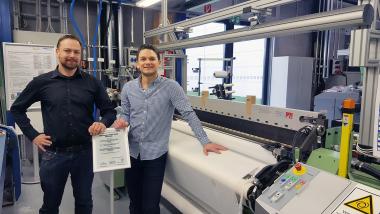PCMC: Mike Shaw Regional Sales Manager for flexographic printing
Paper Converting Machine Company (PCMC)— a division of Barry-Wehmiller and a leading supplier of high-performance converting machinery for the tissue, nonwovens and package-printing industries worldwide—is pleased to announce that Mike Shaw has accepted the position of Printing, Coating and Laminating Regional Sales Manager.
In this role, Shaw will be responsible for the sale of PCMC’s PCL products in the Midwest.
He brings nearly 25 years of sales experience in the offset printing industry to his new position, most recently serving as a district sales manager for web offset presses and finishing systems with manroland Goss web systems.
Shaw holds a Bachelor of Science in mechanical engineering from the University of New Hampshire.
“I’m excited that Mike has joined us,” said Rodney Pennings, PCMC’s Printing, Coating and Laminating Sales Director. “His product knowledge and sales experience will enhance our team, as we support our customers’ continual growth by providing the technology they need.” Shaw will operate from his home office in Milwaukee, Wisconsin.
Paper Converting Machine Company PCMC
PAPER CONVERTING MACHINE COMPANY (PCMC)









